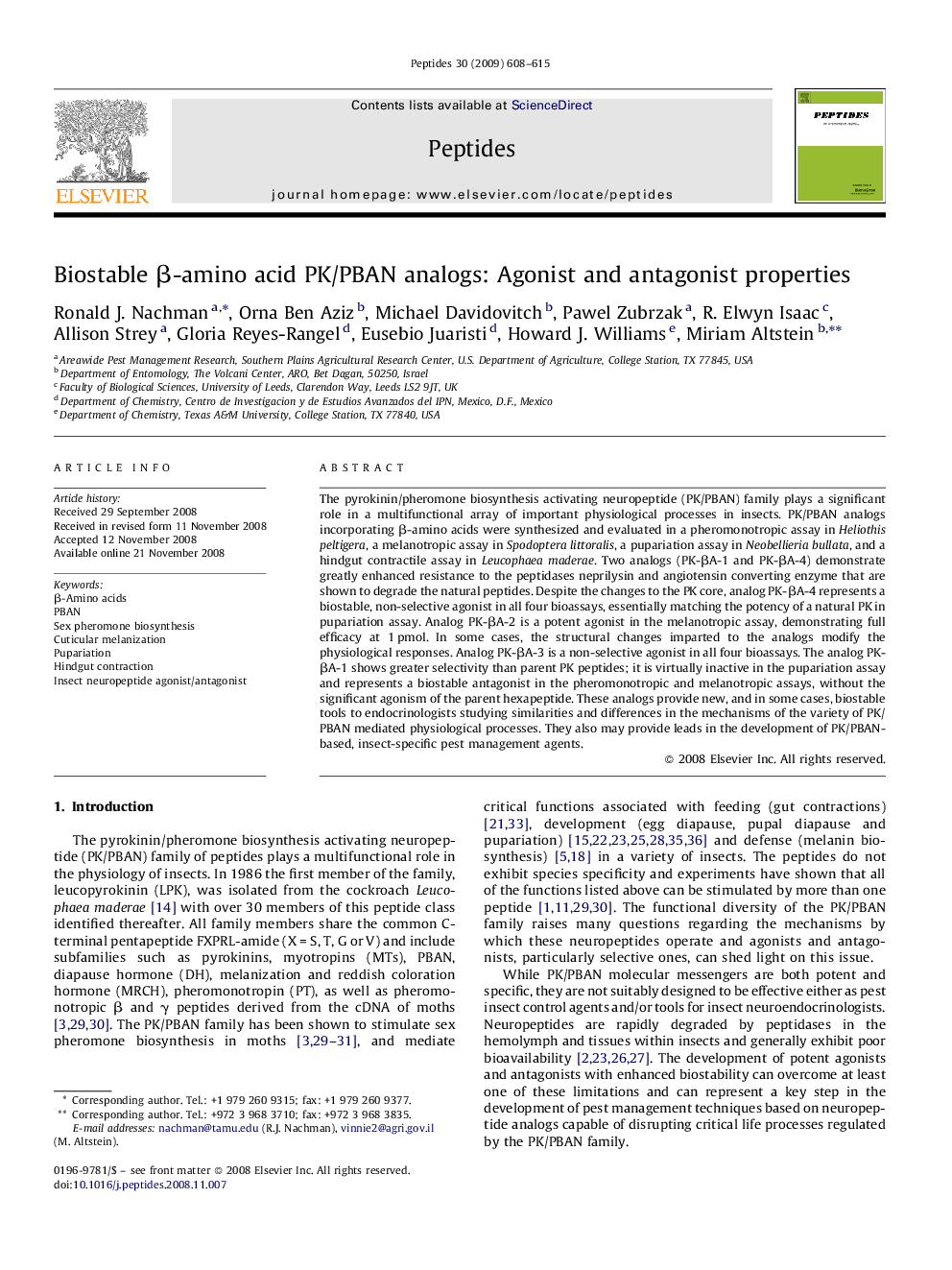| Article ID | Journal | Published Year | Pages | File Type |
|---|---|---|---|---|
| 2007198 | Peptides | 2009 | 8 Pages |
The pyrokinin/pheromone biosynthesis activating neuropeptide (PK/PBAN) family plays a significant role in a multifunctional array of important physiological processes in insects. PK/PBAN analogs incorporating β-amino acids were synthesized and evaluated in a pheromonotropic assay in Heliothis peltigera, a melanotropic assay in Spodoptera littoralis, a pupariation assay in Neobellieria bullata, and a hindgut contractile assay in Leucophaea maderae. Two analogs (PK-βA-1 and PK-βA-4) demonstrate greatly enhanced resistance to the peptidases neprilysin and angiotensin converting enzyme that are shown to degrade the natural peptides. Despite the changes to the PK core, analog PK-βA-4 represents a biostable, non-selective agonist in all four bioassays, essentially matching the potency of a natural PK in pupariation assay. Analog PK-βA-2 is a potent agonist in the melanotropic assay, demonstrating full efficacy at 1 pmol. In some cases, the structural changes imparted to the analogs modify the physiological responses. Analog PK-βA-3 is a non-selective agonist in all four bioassays. The analog PK-βA-1 shows greater selectivity than parent PK peptides; it is virtually inactive in the pupariation assay and represents a biostable antagonist in the pheromonotropic and melanotropic assays, without the significant agonism of the parent hexapeptide. These analogs provide new, and in some cases, biostable tools to endocrinologists studying similarities and differences in the mechanisms of the variety of PK/PBAN mediated physiological processes. They also may provide leads in the development of PK/PBAN-based, insect-specific pest management agents.
